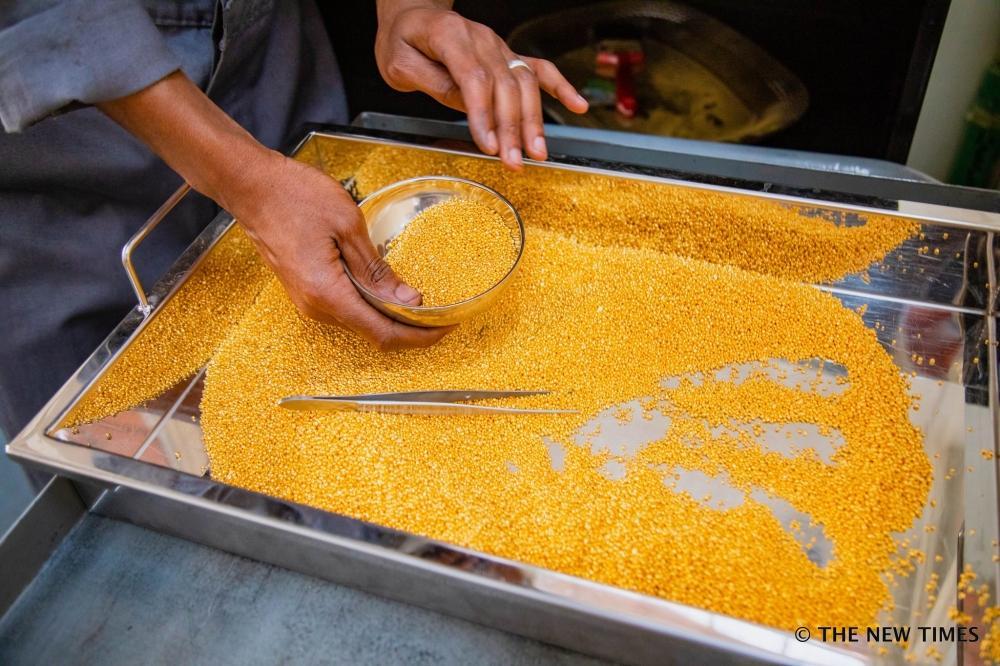Tristan Minyati
Africa-Press – Liberia. Once synonymous with conflict, Africa’s great lakes region now stands at a crossroads where peace, trade, and minerals converge to shape a new future. With renewed peace efforts, notably U.S.-led diplomatic initiatives, and the transformative promise of the African Continental Free Trade Area (AfCFTA), the region has a unique opportunity to pivot from instability to inclusive prosperity.
At the heart of this opportunity is the responsible development of strategic minerals such tungsten, tantalum, tin, cobalt, lithium and precious metals like gold. These resources are essential to the global shift toward clean energy, digital innovation, and advanced manufacturing. With international demand rising and supply chains under pressure, especially due to Chinese export restrictions, the Great Lakes region is uniquely positioned to become a trusted and ethical supplier, turning the region into a cornerstone of Africa’s industrial future.
The central question is clear: how can peace frameworks, regional integration, and strategic partnerships turn mineral wealth into a foundation for lasting stability and economic resilience, particularly between Rwanda and DR Congo?
For too long, the region’s vast mineral resources have been viewed through the lens of conflict and exploitation, a so-called “resource curse.” But this perception is not destiny. With the right governance, shared infrastructure, and a commitment to peace, mineral wealth can become a catalyst for inclusive development rather than a trigger for instability.
The current convergence of diplomatic progress, AfCFTA-driven integration, and forward-looking reforms offers a rare chance to rewrite this narrative. By aligning policy, investment, and regional cooperation, the Great Lakes region can transform its mineral potential into a strategic asset for peace, prosperity, and global relevance.
Joint value addition and regional mineral processing hubs
Rwanda’s 2024 mineral tax reform marks a strategic shift in regional trade, positioning the country as a competitive processing hub. By exempting imported minerals intended for refining or smelting from export taxes, Rwanda aligns with AfCFTA’s vision of intra-African industrial cooperation. This enables DR Congo to export raw minerals to Rwanda for value-added processing, with both economies benefiting from higher-value re-exports.
With Rwanda’s growing refining capacity and DR Congo’s vast reserves, a cross-border value chain can emerge that retains more economic value within Africa. Establishing Special Economic Zones (SEZs) along the borders would further streamline mineral processing, logistics, and export by reducing costs and boosting regional trade.
Rwanda is uniquely positioned to become a leading regional processing hub, leveraging a combination of strategic, infrastructural, and institutional advantages. The country benefits from a well-established logistical network that facilitates access to international markets, further enhanced by the ongoing construction of a new international airport aimed at expanding global connectivity and reliable power generation highlighted by the Ruzizi III hydropower project.
In addition to serving projects in DR Congo and Burundi, Rwanda’s processing capabilities could also be extended to neighbouring Tanzania, reinforcing its role as a truly regional hub. This cross-border potential underscores Rwanda’s growing importance in regional industrialization and value addition.
Peace as economic leverage in mining investment
Mining is one of the most capital-intensive industries, requiring significant upfront investment, long-term commitment, and technical expertise. For resource-rich nations like Rwanda and DR Congo, attracting foreign direct investment (FDI) is essential but geological abundance alone is not enough. Political stability, regulatory predictability, and regional cooperation are critical enablers.
The recent U.S.-brokered peace agreement between Rwanda and DR Congo is more than a diplomatic milestone, it’s a strategic lever for economic transformation. By addressing root causes of conflict and establishing joint oversight mechanisms, the deal creates a stable, investment-ready environment.
This stability opens new pathways for international capital to flow into mining, infrastructure, and value-added processing. The timing is ideal to embed mineral cooperation agreements within the broader Washington-led peace framework, reinforcing long-term stability and positioning the region as a responsible and competitive resource hub.
With China tightening tungsten exports and global supply chains under pressure, the Great Lakes region is poised to emerge as a strategic alternative. The Washington deal could be the missing piece, unlocking sustainable development, regional integration, and a new era of African-led economic resilience.
Building trust in the Great Lakes region’s mineral supply chains
Concerns over conflict financing and child labour continue to cast doubt on the ethical sourcing of minerals from the region. Classified as a Conflict-Affected and High-Risk Area (CAHRA), the region faces persistent scrutiny from investors and global markets.
Peace alone cannot resolve these challenges. To build lasting trust, robust third-party verification systems for mineral sourcing and supply chain custody must be established and embedded into all exports. Transparent oversight is essential to restore confidence and unlock economic potential.
Encouraging signs of progress are emerging. The Letter of Intent signed between Trinity Metals, Rwanda’s leading mining company and Nathan Trotter, North America’s largest tin manufacturer, signals growing international confidence. Trinity’s discussions to supply tungsten to U.S. smelters further reinforce Rwanda’s role as a reliable source of critical minerals.
These developments highlight the transformative potential of peace, stability, and verified ethical sourcing. Long-term success will depend on integrating responsibly sourced minerals into global supply chains, anchored by transparency, accountability, and trust.
AfCFTA as a framework for regional transformation
The peace agreement between Rwanda and the DR Congo, Rwanda’s 2024 mineral tax reforms, and the push for regional value addition are all aligned with the African Continental Free Trade Area (AfCFTA)’s core goals: boosting intra-African trade, industrialization, and investment through policy harmonization and reduced barriers.
Rwanda’s exemption of taxes on imported minerals for processing supports regional value chains, allowing countries like DR Congo to benefit from Rwanda’s refining infrastructure. The peace framework enhances regional stability, essential for attracting foreign direct investment and building integrated supply chains. Together, these developments reflect AfCFTA’s vision of a connected, resilient, and industrialized Africa.
From conflict to cooperation
History teaches us that reconciliation and economic integration can transform even the deepest divides.
After World War II, Germany and France, once bitter adversaries chose cooperation over conflict, laying the foundation for the European Union. The United States and Japan rebuilt their relationship into a strategic alliance. Rwanda’s own journey of healing after the 1994 Genocide against the Tutsi stands as a powerful testament to the strength of dialogue, leadership, and inclusive governance.
Today, Rwanda and DR Congo have a unique opportunity to redefine their relationship not through rivalry, but through shared economic interests and regional solidarity. The African philosophy of Ubuntu, “I am because we are”, captures the spirit of this transformative moment.
Peace, trust, and cooperation are no longer just moral imperatives; they are strategic assets. By aligning policy, investment, and regional integration under the AfCFTA, the Great Lakes region can transform its mineral wealth into a foundation for lasting peace and inclusive development.
Rwanda, in particular, is well-positioned to lead. Through proactive reforms such as securing license tenure, stabilizing tax regimes, and facilitating cross-border value chains, it can attract more international capital and drive responsible mineral development.
This is more than a regional opportunity. It is a chance to reshape Africa’s role in the global economy, proving that from conflict can come cooperation, and from cooperation, shared prosperity.
The author is the General Counsel and Chief Compliance Officer at Trinity Metals, Rwanda’s leading mining company.
Source: The New Times
For More News And Analysis About Liberia Follow Africa-Press






